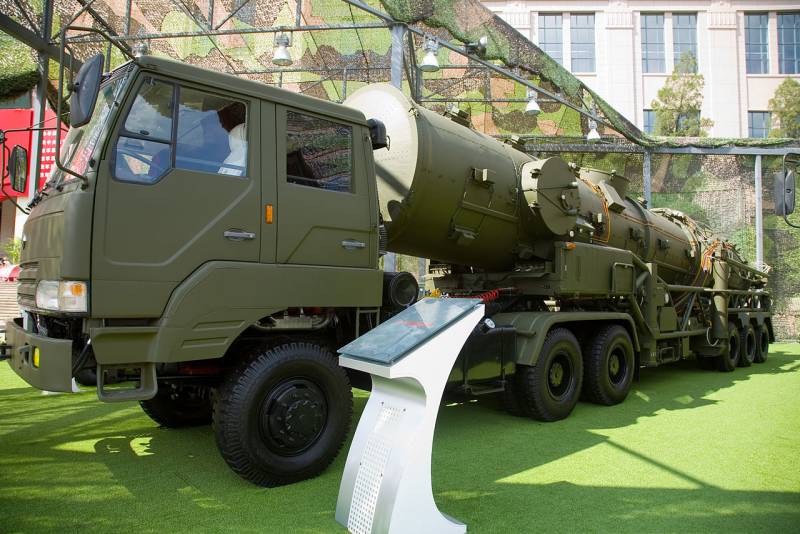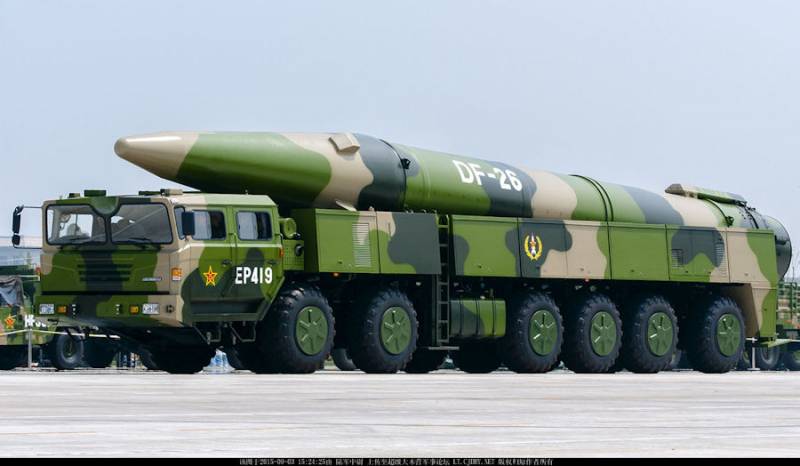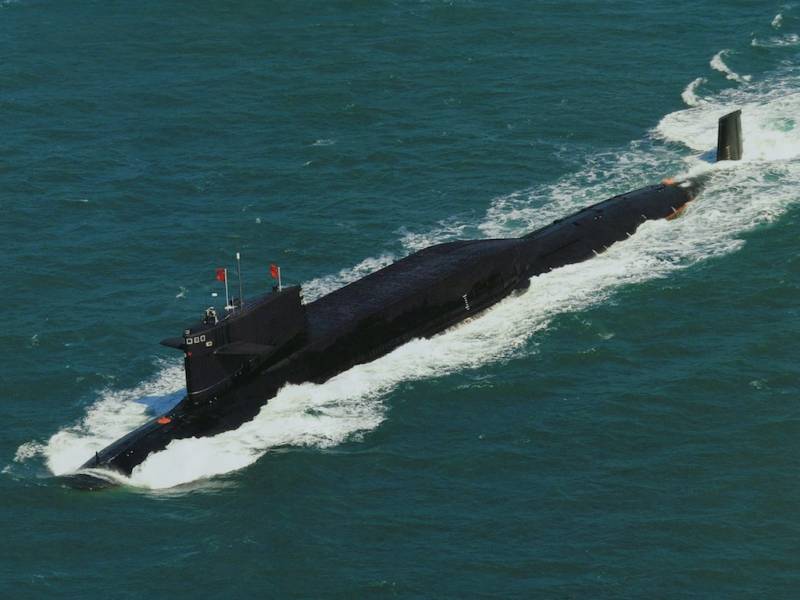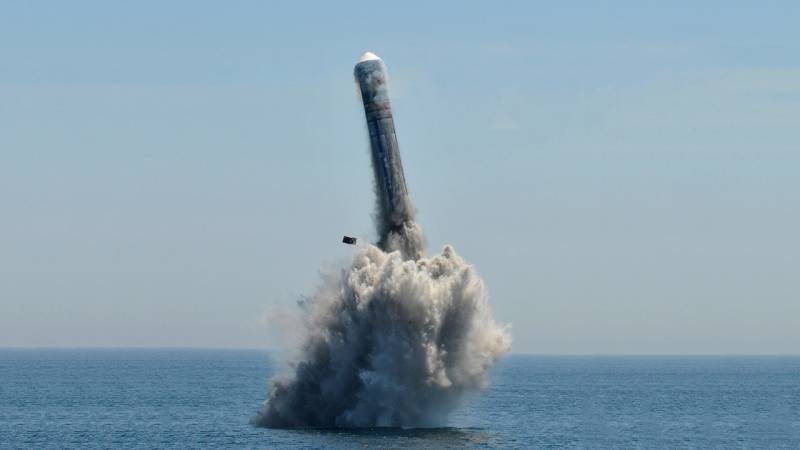Why China is not joining START and INF Treaty
Despite the known disagreements and difficulties, the leading countries of the world continue to cooperate in the field of strategic arms control. One of the main topics in this area is the possible accession of China to existing agreements. However, Beijing does not seek to accept such invitations, since it believes that such treaties could threaten its security.
Bilateral or trilateral?
Russia and the United States are currently continuing cooperation under the 2010 Agreement on the Reduction of Offensive Arms (START III). Until last year, countries complied with the Treaty on the Elimination of Intermediate-Range and Shorter-Range Missiles (INF Treaty). The latter has ceased to exist, and the prospects for the development of strategic offensive arms remain a topic of discussion.
Over the years, the possibility of inviting the PRC has also been discussed. Beijing could take part in the negotiations, influence their outcome and then join the START or INF Treaty. Bilateral agreements would become tripartite, which, according to a number of estimates, would have a positive effect on the world military-political situation. Recent offers of this kind took place a few weeks ago. As before, China received an invitation from the United States.
However, China does not want to accept any restrictive obligations. The small size of the strategic nuclear forces is becoming a formal reason for this - in this respect, China is inferior to the United States and Russia. In addition, there are other factors due to which international agreements may be disadvantageous or even dangerous for China.
Quantity issue
The exact quantitative parameters of the PLA strategic nuclear forces are unknown. China is faithful to its traditions and is in no hurry to disclose strategically important information. In contrast, Russia and the United States, in compliance with existing agreements, regularly publish key data. Nevertheless, various estimates of the number of nuclear weapons in China are known and one can imagine how the Chinese strategic nuclear forces could comply with START III.
According to various estimates, China has several types of nuclear warheads for various purposes with a total number of 250-300 to 800-900 units. The number of delivery vehicles of all classes is estimated at 1200-1500 units. Up to 200-250 ballistic and cruise land, air and sea-based missiles capable of carrying nuclear weapons can be deployed simultaneously. Other complexes of the PLA missile forces use only conventional charges.
Under the terms of START III, a participating country can have up to 800 nuclear carriers weapons. In the expanded state, it is allowed to hold up to 700 carriers and 1550 warheads. As of September 1, 2019, Russia had 757 carriers, incl. 513 deployed with 1426 warheads. In the United States, there were 800 carriers - 668 deployed with 1376 warheads. Also, in the arsenals of the two countries there are non-deployed nuclear weapons that cannot be calculated under the treaty.
Thus, the PLA is currently losing the strategic nuclear forces of other developed countries in terms of the number of nuclear weapons and delivery vehicles. In addition, given the number of such products available, China’s accession to START III simply does not make sense. Armed and on duty are less carriers and warheads than allowed by the terms of the contract. However, START III could significantly limit the future development of the Chinese strategic nuclear forces in quantitative terms.
Medium and shorter range
In the recent past, when the INF Treaty still existed and acted, the opinion was expressed in Russia and the USA about the need to attract third countries to it. One of the new parties to the treaty could be China, which has significant stocks of medium and short-range missiles. However, Beijing quickly rejected all such proposals, citing the special importance of the INF Treaty for national interests.
The PLA missile forces have complexes of all the main classes, and their basis is composed of medium and short range systems. So, with nuclear warheads, at least 30 DF-26 complexes and approx. 80 DF-21 systems of corresponding modifications. There is a comparable number of several types of ballistic missiles for conventional charge and up to 200 short-range systems with similar equipment.
For comparison: on duty there are no more than 70-80 land-based intercontinental missiles with nuclear units. The PLA Navy can deploy up to 48 ICBMs of JL-2 type submarines.
Thus, the missile systems that fall under the terms of the former INF Treaty are still the most massive and, in fact, are the basis of China’s nuclear forces. This is due to issues of production complexity, the strategic position of the PRC and other factors. Obviously, the abandonment of medium- and shorter-range missiles would be a serious blow to the country's defense capabilities. It is understandable why Beijing rejected proposals to accede to the Russian-American treaty.
Development trends
The PRC does not announce its plans for strategic nuclear forces, which is why again it is necessary to rely only on estimates and assumptions. Some of the forecasts regarding the development of Chinese strategic nuclear forces may be cause for concern. Others look less pessimistic.
Recently, China has developed and put into service a variety of missile systems of all major classes, designed for strategic nuclear forces, - land, aviation and marine. Work is also underway to create nuclear warheads. Most likely, similar processes will continue in the future, which will lead to quantitative and qualitative changes.
The American Defense Intelligence Agency believes that in the coming years the main work will go towards increasing the number of warheads and their carriers. By 2030, a doubling of arsenals is expected. Such assessments and the current state of affairs allow us to talk about the future achievement of parity with leading countries.
Qualitative changes are less predictable. The PRC has the technological capabilities to further improve its delivery vehicles, and it is quite possible to increase the number of ICBMs with a gradual increase in the share of such weapons in the missile forces. Accordingly, the importance of medium and short-range missiles will be reduced. However, the geopolitical position of China does not allow a complete transition to intercontinental missiles - medium and short-range systems will remain an important tool for some military and political missions.
Reluctance to join
China still does not want to accede to the Russian-American agreements stipulating the development and deployment of strategic nuclear forces. The reasons for this are well known and understood. Meanwhile, the situation in the world is changing; The strategic nuclear forces of the leading countries are also changing. However, even after such changes, one should not expect Beijing to show interest in restrictive agreements: this time it will have other reasons.
In the recent past and now, China did not join the Russian-American agreements for the simplest reasons. The limitations of START III are many times higher than the capabilities of the PLA strategic nuclear forces, as a result of which such an agreement is simply useless. Signing a contract only makes sense as a gesture of goodwill and a demonstration of peace. The INF Treaty, in turn, poses a serious threat to national security, and the PRC would never join it.
In the future, further growth of the Chinese strategic nuclear forces is expected, the result of which will be quantitative and, possibly, qualitative parity with other nuclear powers. In such circumstances, the voluntary adoption of restrictions can slow down and impede the development of the armed forces and prevent strategic security.
Thus, in the past, China has not acceded to existing nuclear weapons agreements, is not going to sign them now, and probably will not do so in the future. At different periods of time, in different settings, and under the influence of a wide range of factors, START III or INF Treaty agreements at least do not correspond to Beijing's interests. Therefore, we should expect that in the foreseeable future there will be a well-known situation with regular offers and constant refusals.




Information